Music cannot be “Christian”, only people can take up the cross of Christ and follow him.
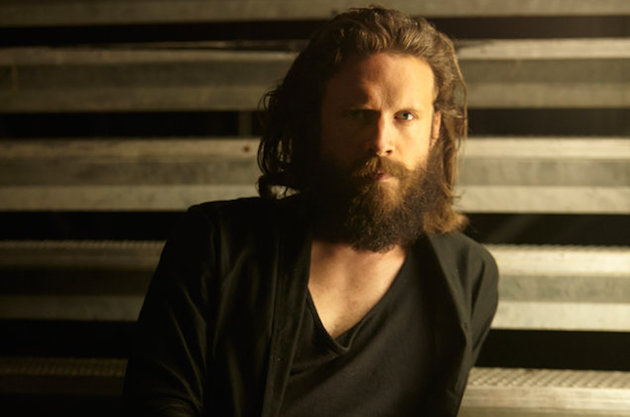 The former drummer of Fleet Foxes, now known as Father John Misty, was raised in a strict evangelical family.
The former drummer of Fleet Foxes, now known as Father John Misty, was raised in a strict evangelical family.
Most people who reject religion don’t do it for lack of knowledge, but because they know too much. I’m always interested in people who, like me, have had a Christian upbringing but who have then, unlike me, become estranged. I recognise that I’m often more curious about their stories than those of believers, who often speak in stereotypes and empty words, creating a feeling of weariness.
My favourite album this year is by a musician raised in a strict evangelical family from Rockville (Maryland). Josh Tillman now goes by the name of Father John Misty. The former drummer of Fleet Foxes has achieved success at the age of 35 with his fourth album “Pure Comedy”, considered by critics as one of the best albums of 2017. The boy who was not allowed to listen to “secular music” until the age of 17, has produced a critical album about faith, God and despair.
He has been to Spain, where he once again demonstrated how he much more intense his live performances are than the serenity that characterised the band he was playing with before. His concerts are a big show, full of the passion and mannerism of one of the most ambitious musicians of the moment. His marvellous piano ballads are comparable to Elton John or Harry Nilsson. It’s been a long time since someone sang so well and produced such good melodies.
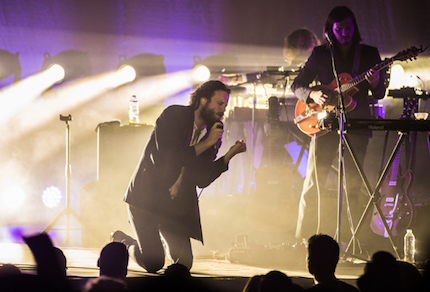 TIllman was not allowed to listen to so-called secular music until he was 17 years old. His almbum is about faith, God and hopelessness.
TIllman was not allowed to listen to so-called secular music until he was 17 years old. His almbum is about faith, God and hopelessness.The subject of religion comes across insistently in his music. For some people it may even be too much. Heinrich Böll used to say that atheists “bore me because all they ever talk about is God”. His sarcastic tone makes some people mistake the truly confessional nature of his work for satire. Irony and anger are intermingled in his lyrics…
When he describes religion in “Pure Comedy” as “something that only a madman would conceive…to numb the pain”, or he declares that there are “no gods to rule us” in “Total entertainment” he seems to be repeating the traditional gripes of atheism. I however think the words express the truth of the feelings that Lennon was talking about when he spoke of “God” as the concept “by which we measure our pain”.
I am moved by the last words of Pure Comedy: “I hate to say it, but each other's all we got”. I think that they express a reality for which no intellectual argument has the answer. It is a great error of apologetics to believe that atheism is only a question of the mind. We are much more complex than that. That is why I’m more interested in the music of Father John Misty than in many worship songs that have nothing of the humanity of the book of Psalms, expressing so many different emotions.
I’m glad that I was given a different education to Tillman, with no qualms about “secular music”. Firstly, I think that there is no division between the sacred and the secular. Music is not “Christian”, because only people can take up the cross of Christ and follow him, not words or musical notes. And I hope that one day Tillman will return to the foot of that cross and continue his way with Him ….
HOTEL CALIFORNIA
This year is the 40th anniversary of “Hotel California” by the Eagles, one of the most popular albums of the 1970s, produced by this West Coast band at the height of their career. The especial edition that they have brought out includes the original album, new material from their concert in the Los Angeles Forum in 1976, two books with photographs of the recording session, and three posters.
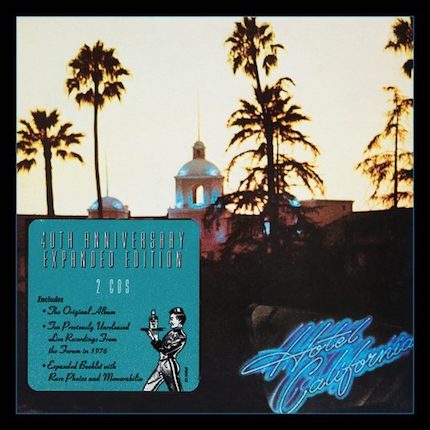 In 2017, one of the most popular albums of The Eagles turned 40.
In 2017, one of the most popular albums of The Eagles turned 40. According to the British critic, Barney Hoskins – author of an interesting book on the Hotel California period– at the end of the 70s, singer-songwriters and cocaine-addict cowboys would get together in LA canyons such as Laurel Canyon – where Tillman is currently living – in a creative community that would come to revolutionise the world of rock. Bars like the Troubadour on Santa Monica Boulevard were for bands like the Eagles a “holy place, protected by amazing grace”, as they say in the song The Sad Café.
Glenn Frey and Don Henley set up the band to sell millions of records. They both lived in a shack on the hills near the Hollywood Bowl. Among the songs that marked their debut with Asylum in 1972, was a version of Jackson Browne’s “Take It Easy”, which seems to capture the dream of freedom that filled southern California at the end of the 1970s. When their producer, Geffen, sold the company to Warner, Asylum joined the Atlantic label. Frey and Henley lived in Laurel Canyon, surrounded by everything that life had to offer.
Their album Hotel California provides a harsh description of the emptiness of everything that fame and money can achieve in this world. “Life in the Fast Lane” leads to “The Last Resort”, “where pretty people play, hungry for power”. The optimism of the 1960s gave way to the end of the party. In an interview, Don Henley recalled that the first half of the 1970s had been a time of great escapism. However, by the end of the decade, they found that they were just doing a lot of LSD and saying that they would be revolutionary, but in fact changing nothing.
One of the founding members of the band, the bass guitar player Bernie Leadon, is now a Christian. When the British evangelical author Steve Turner asked him how he remembered those songs, Leadon said that he still thought that they revealed a lot about the human nature, but that they did not provide the answer. Although the band had a lot of good things going for it, he came to the realization that they always wanted what they didn’t have, and that it was therefore impossible to be satisfied, and they were stuck, victims of their own desires.
Vanity of vanities, says Ecclesiastes. Life is so short (1:4) and there is no way of getting satisfaction, as the Stones put it. All that remains is desire and dissatisfaction, outside Eden. “Need is the religion of the religionless”, says Tony Walter in his book All You Love Is Need, “the morality of those who pride themselves on having progressed beyond morality”. The question is: who will calm that need? The Preacher concludes: Remember your Creator (12:1). Forgetting him is death, while remembering means life and life in abundance.
THE REBELLION OF THE REFORMATION
“There is nothing new under the sun”. Someone else that didn’t have a good experience with religion was Luther, whose anniversary as part of the Reformation has been the subject of many commemorations in 2017. This year I have heard the current version of his hymn “A Mighty Fortress Is Our God” many a time. Whoever wants to listen to what it sounded like originally should listen to the recent recording by Vox Luminis, one of the most famous groups of early music, in their album “Luther and the Music of the Reformation”, produced by Ricercar.
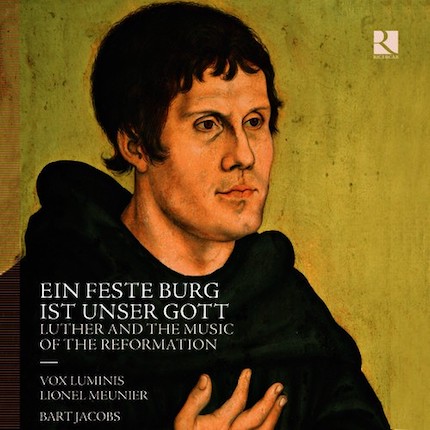 WHoever wants to know how Luther's music sounded in its time, has to listen to Vox Luminis.
WHoever wants to know how Luther's music sounded in its time, has to listen to Vox Luminis.This group was founded in Namur just over a decade ago and specialises in the music of the sixteenth and seventeenth centuries. It has now produced a double CD focusing on the Lutheran liturgical repertoire. The recording not only includes the work of the reformer, but also that of Heinrich Schütz, Michael Praetorius and Joachim von Burck. The first CD includes the Mass, the Magnificat and the Passion of Joachim von Burck, which was the first polyphonic of the Reformation.
The second CD contains a collection of motets following the order of the calendar, until the Lutheran Christmas. There are pieces by Hammerschmidt, Bernhardt, Shütz, Selle, Franck, Othmayr, Altenburg, Scheidt, Schein and Walter. It is rounded off by a few pieces of organ music by seventeenth century composers, played by Bart Jacobs. The group, directed by Lionel Meunier this year, came to the Estella-Lizarra Early Music Week and will be playing at the National Auditorium of Madrid at the start of the year.
DYLAN’S CONFLICTIVE FAITH
Of all the phases that Bob Dylan has been through over the years, none is as unpopular as the so-called “Jesus phase” of the genius from Minnesota. Many have tried to understand why this Jewish singer-songwriter announced that he had accepted Jesus in 1978. A compilation of unpublished songs, “Trouble No More”, brings together the music produced by this Literature Nobel prize winner from 1979 to 1981, covering the period that he spent in the Community of the Vine, where Dylan was baptised and studied at a Bible school.
An exhausting world tour marked a period of frenetic activity after the failure of Dylan’s marriage with Sara. He felt so unhappy at that point that he had started to seriously think about the possibility of suicide. Some of his friends and musicians in his band had become Christian, following the excesses of the 1960s and 70s, when many of them had seen their lives ruined by drugs and alcohol.
Some say that Dylan had a vision of Jesus as the King of kings in a hotel room in Tucson (Arizona). The fact is that if one person was instrumental in his conversion it was an Afro-American woman called Mary Alice Artes, who had become part of the Vineyard Community, a small evangelical church in the valley of San Fernando in LA. The community had been founded in 1974 by a pastor and singer of Lutheran origins, Ken Gulliksen. Being a small church, it didn’t have its own premises so it met in rented rooms or on the beach itself.
At the beginning of 1979, Artes put Dylan in touch with two pastors in this community, with whom he began a discipleship course, studying the Bible with them every morning for more than three months. They were both baptised that same year. It is obvious that he was looking for something to give meaning to his life. He was anxious and restless. He drank too much and he felt guilty and lacking direction.
The contrast of the songs that his new faith inspired made him toy with the idea of passing them to one of the Afro-American singers in his entourage. In the end, however, he decided to record Slow Train Coming in 1979, an album that talks straightforwardly of his new relationship with Jesus. His first concerts in San Francisco show a different Dylan, refusing to sing his old songs, repeating the words of Paul to the Corinthians: “The old things have passed; look, everything is made new again”.
Bob would pray with his musicians before concerts, often being spotted holding hands in a circle. Wearing his black leather jacket, he looked like a rock singer, but he spoke like a preacher. His sermons provoked shouts from the crowds who did not know how to react to it all.
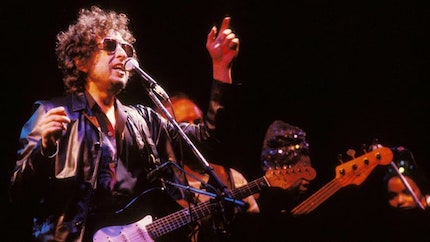 There is no doubt nowadays about the sincerity of Dylan's Christian experience.
There is no doubt nowadays about the sincerity of Dylan's Christian experience.At that time, he was widely ridiculed by critics. A columnist in the San Francisco Chronicle said: “Dylan has written some the most banal, uninspired, and inventionless songs of his career for his Jesus phase. Years from now, when social historians look back over these years, Dylan’s conversion will serve as a concise metaphor for the vast emptiness of the era.”
Today, no one doubts the sincerity of his experience. In “What can I do for you?”, Dylan was singing to God: “You have laid down Your life for me.”. And his prayer was sincere. He could say: “I've escaped death so many times, I know I'm only living/By the saving grace that's over me.” Dylan was truly grateful. He really believed in what he was singing, and ultimately he suffered by making his faith public. That is the picture that Francesco Clemente also paints in another book about that time, when Dylan seemed to be so stubborn and steadfast about his beliefs. But he soon discovered another reality: “It's the ways of the flesh to war against the spirit/Twenty-four hours a day you can feel it and you can hear it” (Solid Rock).
What then remains of his faith? It is difficult to know anything with any certainty about the living legend. His interviews tend to be based on laconic statements; he hardly has a social life; and he hardly ever says anything during his concerts. One of the latest biographies clearly states that Dylan has never renounced his faith in Jesus. However, the lyrics of some of his songs point to a spiritual battle.
That is why some of us continue praying for him, that he may find the peace that he has still not found. Because, as he knows full well, as it is one of his favourite songs, “But you're gonna have to serve somebody, yes / Indeed you're gonna have to serve somebody / Well, it may be the devil or it may be the Lord / But you're gonna have to serve somebody.”

Las opiniones vertidas por nuestros colaboradores se realizan a nivel personal, pudiendo coincidir o no con la postura de la dirección de Protestante Digital.
Si quieres comentar o